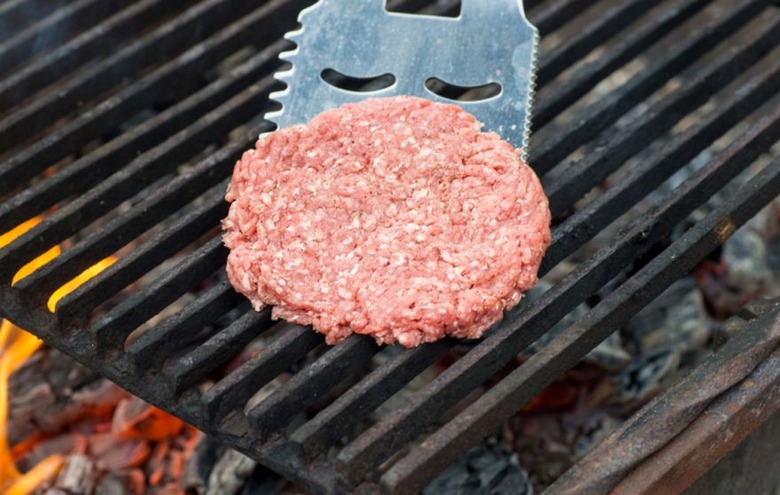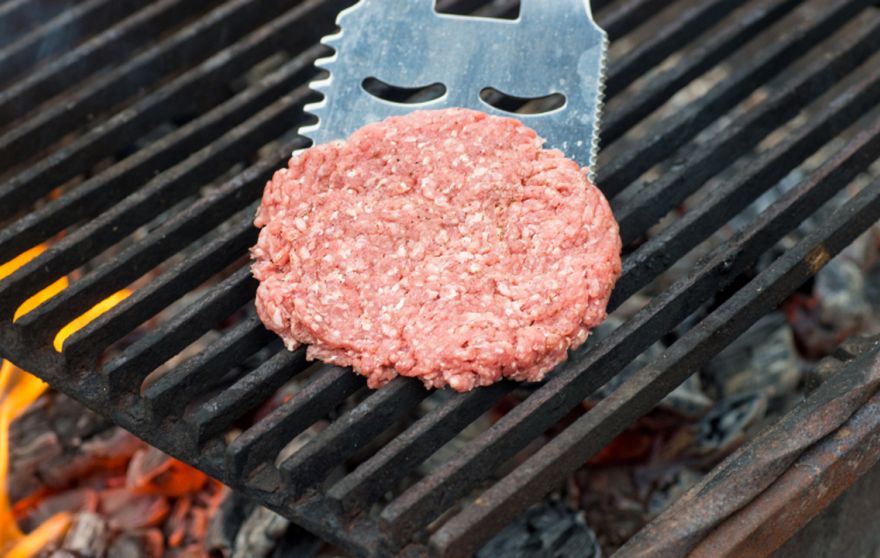1. Don't skimp on quality tools.
There are plenty of cooking tool brands out there but the classics never go out of style.
"I like to use Weber Grill products. You pay a bit more, but in the long run, they are worth it since they perform better and last longer," says Richard Doucette, executive chef and vice president food and beverage at Mohegan Sun. "My grill brush at home has 2 types of bristles. One course for heavy grime and one fine for quick clean ups."
If you can't spring for a Weber tool, several chefs told us that it's important to look for something with a long-handle that only has stainless steel bristles– and a scraper blade. But before you start using any tool, brand new or old, inspect it carefully for loose pieces.
2. Clean with care.
If you start grilling right on top of last year's crusty residue, you'll end up with bitter burgers and buns. But even if you have the world's best brush, the wrong technique won't help.
"The best time to clean is when the grill is still hot so you get the steam action going," says Levine. He recommends using heat-resistant gloves while going to town on the grill. But he also has a special technique for those worried about stray bristles.
"Take one of your grill brushes, and wrap the end in a dampened, durable kitchen towel, then start scraping away. That way you get heat, bristles and cloth working together to clear residual ash." Ideally the towel will also capture any stray bristles.
3. Know when to say goodbye.
We all have our favorite tools but when it comes to barbecue brushes, replacing them on a regular schedule is the safest route to avoiding injury. But how often should you replace a grill brush?
It depends on how often you fire up the coals.
"If you grill a lot, you should inspect your brush often," says Doucette. "Very carefully, grab some of the bristles and give them a tug to see if any pull out easily. If they can, it's time for a new brush."
For those grilling at least twice a week (and consistently cleaning in between each barbecue session), consider replacing the grill brush every three or four months.
You can also extend the life of your grill brush with a little maintenance.
Says Doucette, "It's also a good idea to run your brush through the dishwasher a few times during the grilling season to remove any caked on grease and keep the brush in good sanitary condition."
4. Prepare meat properly.
Errant grill bristles could find their way into any type of food if you're not paying attention but Stew Leonard, Jr., CEO of the eponymous food stores founded by his father Stew Leonard, Sr., says "searing and charring techniques [can make the protein] skin crisp to seal in juices and makes less porous which can help fend off debris."
And to avoid flare-ups, excess fat should be trimmed from any cut of meat so it doesn't it end sparking a fire.
5. Cover up, pay attention and look closely.
Americans have been conditioned to think of grilling as a totally chill pastime. But casually poking a hot dog with a fork in one hand and a Bud Light in the other isn't how serious grillers should operate.
"There's a reason aprons exist," says LeVine. "The material covers areas that actually protects vital organs so don't be grilling in a tattered t-shirt."
Aside from taking personal safety precautions, home grillers should carefully inspect any food being served. It never hurts to check any burger patties or steaks for obvious metallic protrusions but when it comes to real grill safety, it's all about the prep work.
"Owning a grill is like having a car," Levine laughs. "You have to maintain all the parts—check the oil occasionally—but you should always know what's going on under the hood."
Related:
- 9 celebrities who make spirits, wine and beer
- Blind man claims McDonald's drive-thru is discriminatory, files lawsuit
- Top 10 roller coasters to get you screaming in 2016
- JetBlue apologizes for banning burlesque dancer wearing 'inappropriate' outfit
- Chinese theme park uses Disney characters illegally during grand opening
This article was originally published on May 27, 2016.

